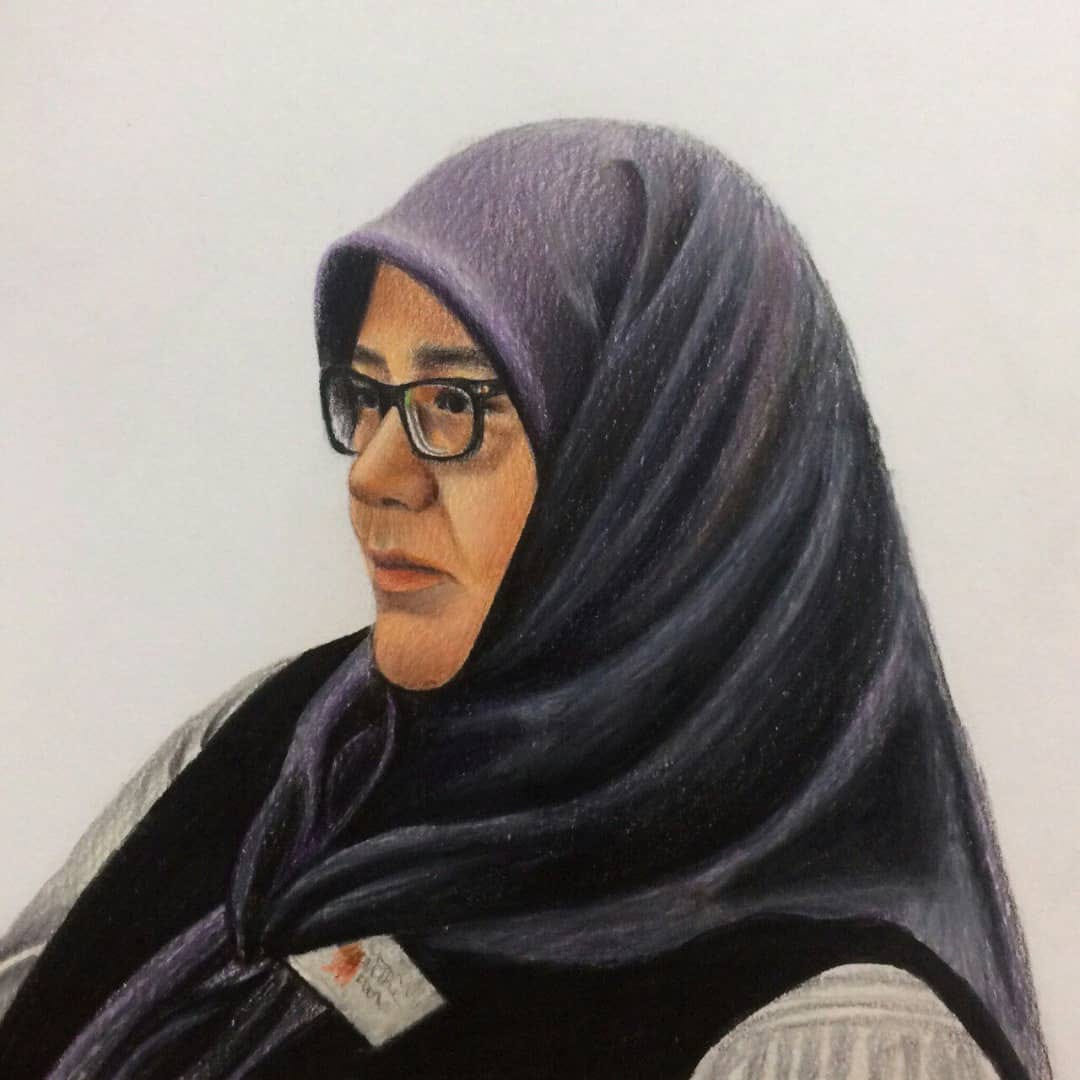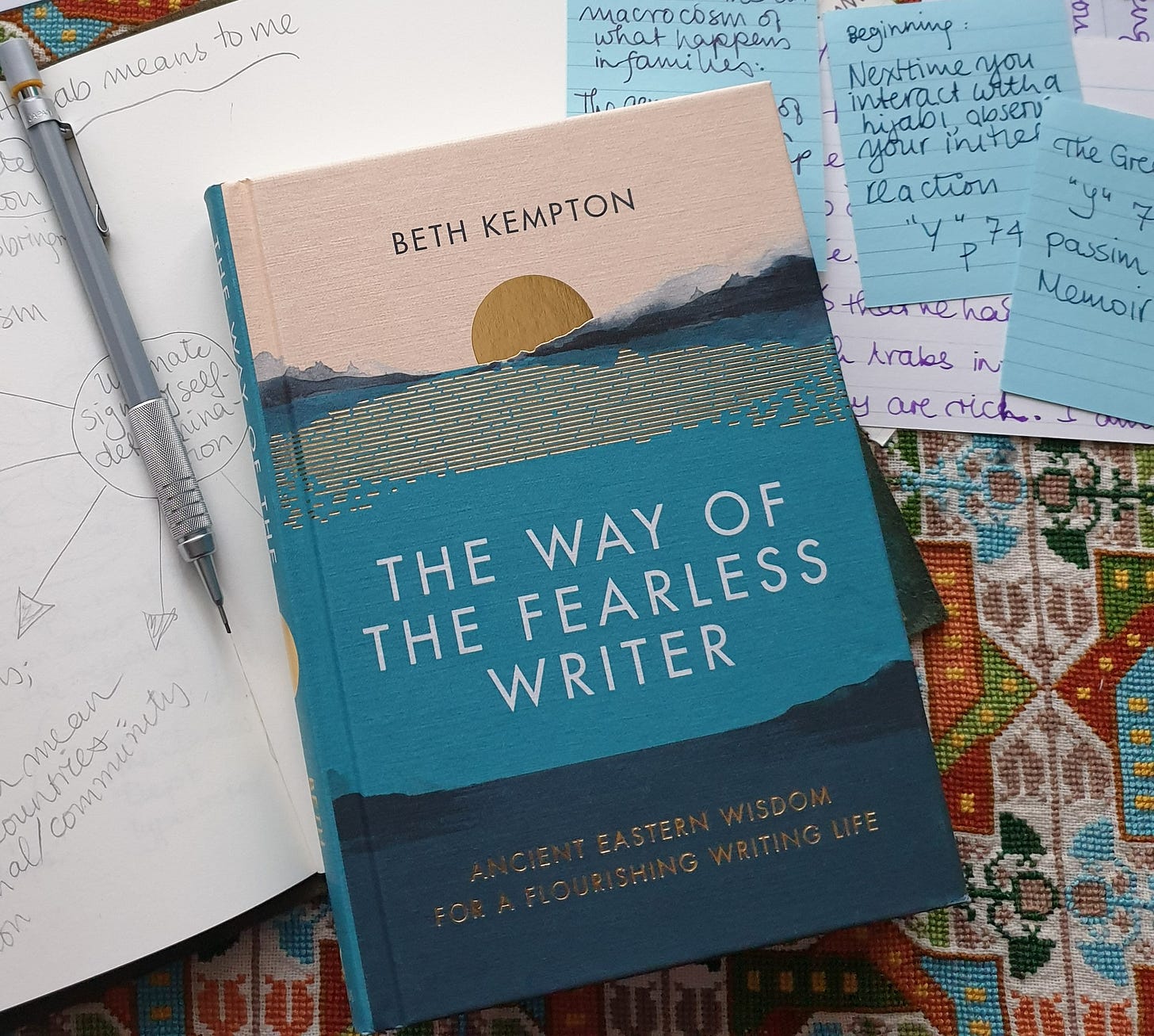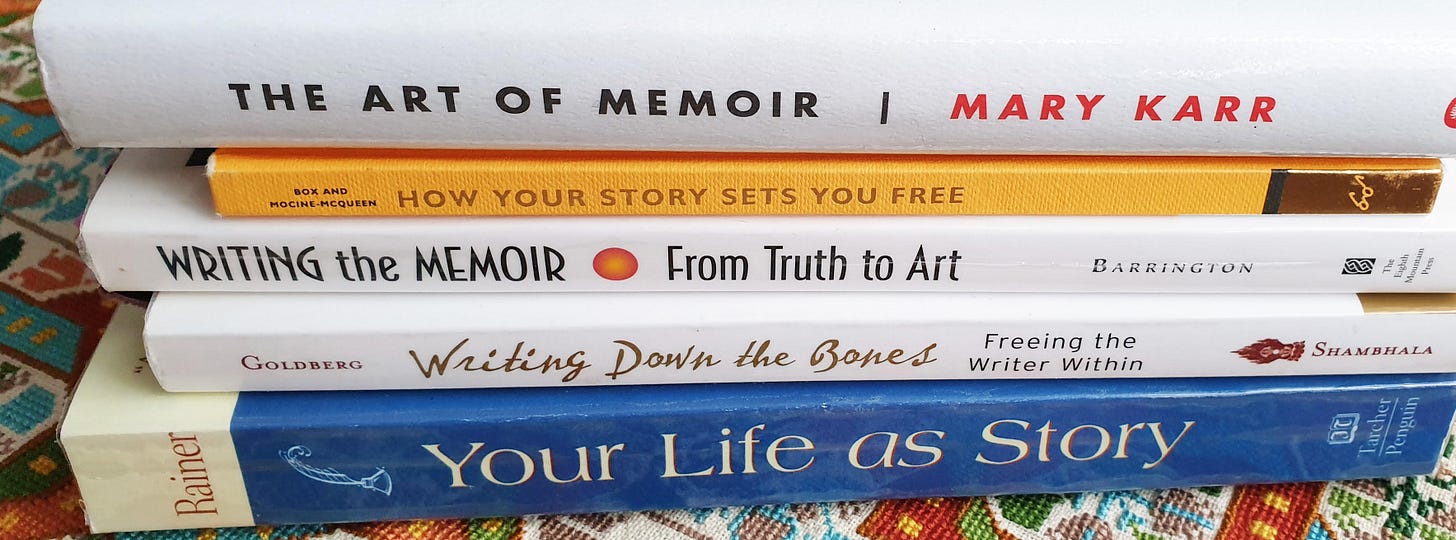Owning it - and owning up to it
Boundaries and choices: set and made by whom?
Next time you find yourself in a space with a woman in hijab, observe your initial reaction: surprise, condescension, avoidance, curiosity? I won’t put you on the spot, even though I’d love to know; let me just say, I know, I’ve been there - on both sides.
I have consciously resisted writing about the hijab for a long time, but the recent world events have brought up very strong feelings that relate to my own life experience (see also below, under Week 34). Stories will out, some for the first time.
I was born into a Greek Orthodox family by a mother from the Greek expatriate community in colonial Egypt, and a father born and raised in the small island of Kassos, Dodecanese, which was Ottoman territory until the end of the Great War. Greeks have always lived closer to Muslims than many other Europeans: the Greek lands that eventually formed the Greek state in the early 19th c were under Ottoman occupation for almost four centuries. Our knowledge of Islam was filtered through the excesses of the conquerors which included the torching of my native Kassos. Throughout the Ottoman occupation Greek identity was preserved with single-minded determination resting on and supported by the dual pillars of the Greek language and Orthodox Christianity. I grew up with the classic orientalist idea that Islam was a backward faith, and that women in hijab were subjugated and submissive. This is the one side I’ve been on.
Fast forward a few years later: I embrace Islam and adopt the hijab out of personal choice (thereby hangs another essay - possibly more.) To me, the hijab meant a declaration of independence of action, a breaking away from the traditions of my conservative family. But signs can have multiple meanings. My Greek family and friends thought I had sold myself wholesale to the Tall Dark Stranger, the Iranian pen-friend I ended up marrying. Both in London and Tehran, in the 90s and the early 00s, the Iranians sympathetic to the early ideals of the Islamic Revolution saw me as an exemplar and a proof of a universal truth, and was often co-opted by the system for its own aims. Those on the other side may have seen me as delusional, a fake, or worse: somebody not to be trusted. Although evidence for the former was easy to come by (compliments, praise), evidence of the latter was much harder to pin down: meaningful stares, a lull in an ongoing conversation, an irritated pull forward of a headscarf in my presence. Even if I wasn’t able to pin it down I could feel its energy.
Last week I was chatting with a new Iranian friend about our life experiences in Iran. She recounted an experience at a playdate during the demonstrations triggered by the steep rise in oil prices in 2019. I could picture the setting, somewhere in the affluent north Tehran: elegant ladies who lunch, perfectly coiffed, manicured and eye-browed under their colourful shawls arranged carefully over their heads, some with nose jobs recently done. They are having a heated conversation about the demonstrations, when another woman, a late-comer, comes in. Her appearance is different from theirs: her headscarf is tightly wrapped around her face, she is possibly wearing a black chador. A hush ripples through the room, voices die down. Who might she be? Is her husband in a government position? Is it safe to speak in her presence? My new Iranian friend said that she felt sorry for her.
Flashback to ten years before that, when I enrolled in a class of traditional Iranian singing in a women-only park near my house in Tehran. There were only three other women in the class, who obviously knew each other and the instructor, and were chatting happily among themselves as I turned up at the classroom door. A hush descended as I came in: I also wore the hijab tidily around my head, so I looked like the type of woman who would go to a Quran class, not a singing one. It soon became clear that I was not Iranian, but still, I felt unwelcome. The female instructor asked me to sing to test my voice.
“Your voice is no good for Iranian singing,” she declared. “It’s too high, more suitable to the European style.” Even so, I thought I’d give it a go. She was an experienced singer, who refused to give public concerts because only women were allowed to attend them, and had chosen only to teach. But it was clear she resented this silencing (who wouldn’t?) and the resentment seeped through in the class. I eventually gave up, in effect silencing myself in a singing lesson - not for the first time, and not just in singing lessons.
My new Iranian friend and I agreed that what unites women is much more than what supposedly divides them.
That is the beauty of patriarchy, I suppose: the ones being policed are the ones policing
Seba Talkhani
Over the last few months, an online campaign was underway on Instagram, with story polls gathering votes: “I am against the compulsory hijab - will you join me?” They were signed and shared by Iranian women who wear the hijab themselves, but campaigned for others’ freedom of choice. This move seems to have died down now (temporarily I hope); I assume because the political atmosphere is polarised and feelings run high.
The literal meaning of the word ‘hijab’ is a dividing wall or curtain, a boundary. When I wear the hijab as a personal, autonomous choice, as it has been for me, I exercise my own agency and volition, and express a boundary I set myself. When it is imposed externally against my will, it becomes a limit on my freedom and an unacceptable violation of my personal boundaries. The time has come for the hijab to stop being a dividing wall between women, thus playing the role it is assigned to by a patriarchal system, and to be allowed to take on the meaning that every woman chooses to ascribe to it.
As a woman I have no country.
As a woman my country is the whole world.
Virginia Woolf
In a writing group check-in earlier last week I said that I had got a bucketful of ideas about ‘the hijab essay’, and that I was hoping to have some provisional structure by the time this newsletter post should have been out last Saturday. It was not to be: the bucket overflowed and overwhelmed me, and thus this post is one week late. I had to take a step back, re-evaluate the ‘why’ of the writing: in this specific post I make the point that all women, irrespective of sartorial choices, need to stand together in support of all women’s choice.
I have barely scratched the surface - this project will turn out to be much bigger that I thought. But the only way is through: the ‘hijab essay’ will probably turn out to be a series, and not just about the hijab, but about much more.
I’d love to hear your comments!
Now reading…
With the universe sending signals, I am now working through The Way of the Fearless Writer by Beth Kempton. I look forward to her a brand new two-week course Autumn Light, starting on 17 October.
The rest of the strands…
Memoir and Life Writing Group
Autumn is well underway, the nights are getting longer: no time like the present to turn inwards, maybe towards writing your own story. If you’d like to check out our supportive group, visit the Memoir and Life Writing group at The London Writers Salon. We meet on the 1st and 3rd Thursday of each month, to get to know each other and to talk about our work.
On Thursday 6 October, fellow member Ash ran an inspiring poetry workshop on unlocking memories. He started off by asking friends to share who their favourite poet is and how they would define poetry. “We are all hardwired for poetry,” he said, before setting a short writing exercise to the prompt I remember. His comment felt like a permission to tap into a poetic vein I had never thought existed.
Our next community meeting is on Thursday 20 October, 5-6 pm BST.
If you would like to join hundreds of other writers writing in community, join the free Writers’ Hour; one of the four daily sessions is bound to fit in with your daily schedule. We can’t wait to welcome you!
…and the long-haul project: 52 weeks to a Good Life
Our friendly, wise, supportive community at the Stoic Salon is now eight months into the book Live Like a Stoic: 52 Exercises towards a Good Life book, and has met live on zoom eight times so far. The authors Massimo Pigliucci and Gregory Lopez have joined us twice to answer questions from the community, once shortly after the beginning of our journey (26 February 2022) and once halfway in, on 23 July 2022.
Here follow my notes on the ongoing lessons of the last five weeks.
Week 33 - Set up social rules for living (17 September 2022)
This week went on to show how hard it is to look at myself: at the beginning of the week, I managed to come up with only two rules:
Focus only on improving myself rather than trying to change others. I have come to realise that there is so much work needed on myself, that my lifetime won’t be enough. Better get on with it – 4,000 weeks (if lucky) are fast running out!
The second rule is related to the first, and comes from my everyday experience.
Conserve energy rather than fritter it away talking about unresolvable topics and debating aimlessly. I know only too well what topics will generate aimless argument in the family; well, not exactly aimless, rather the aim being “I am right, you are wrong”. For decades I just could not let the ball drop, and always had to feed the argument in the hope of having the last, victorious line. I still initiate the conversation (haven’t yet got to the point of deeply believing in its futility) but I am now able stop without feeling discomfort as soon as the conversation begins to morph into an argument. For me this is a big achievement.
Week 34 - Care about more people (and other beings) (24 September 2022)
I am always challenged by the sympathy/empathy distinction, and this week has been a very difficult one, mostly in the light of the Iranian unrest: and now I am faced with a moral dilemma that is testing my (very limited) Stoic mettle. Over the last couple of days five Greek journalists got in touch to ask me to be interviewed on the situation in Iran, but I declined, saying that I refrain from making political comments. Is the refusal to comment itself a political stance? Or is it fuelled by the fear of being misquoted to fit the journalistic ‘story’ (it has happened to me before with out-of-context quotes)? If this happens, can it affect others? I will sit with the discomfort for a few days and see where it takes me.
Week 35 - Question every action (1 October 2022)
I found the quote by Marcus Aurelius at the beginning of the lesson very useful. "What does this action mean? Shall I repent of it?"
At the end of my checkout last week, I had opted to practise patience and not to rush into any rash action. Throughout this week, I continued to question my personal responsibility, but the only way through it was to journal my random thoughts. I now have a heap of mixed-up thoughts, but I anticipate the material will coalesce into something when it is ready.
Week 36 - Catch and apply the dichotomy of control to initial impressions (8 October 2022)
I haven’t done at all well this week; in fact, I am so disheartened I feel as if I’m back to square one of the 52 Weeks (Week 1) when I was just working out what lay within my control and what doesn’t. If anything, I’ve been overthinking this short newsletter essay that should have gone out sometime today, but I’ve been so beset by doubts that I’ve just put it aside, maybe for tomorrow, maybe for later.
Week 37 – Catch and examine your judgments underlying your impressions and impulses (15 October 2022)
Throughout the week I caught myself being judgmental towards people (men) with patronising attitudes, both over in Iran and closer to home; I caught myself reacting almost out of reflex, as I’ve done for most of my life. Rather than responding with a cool head and Stoic balance, I have reacted out of the ego need, and out of old and entrenched anger and resentment.
This is where Stoic teachings have made a difference: I allowed myself to feel the emotions, and then took a step back to re-assess the situation. I reminded myself of Marcus’ words: “we are all made for the sake of each other: either teach others or put up with them.” There is no third way as in “keep hitting your head against the brick wall of their intransigence.” Mental note: don’t push doggedly when the thing won’t budge. Accept that the brick wall is not likely to break this way, change route and see whether you can find another way out - or through. My way right now is to put my thoughts down in writing: a small beginning is this newsletter post.
PS: Drawing was made by Elaheh Soltani, my ex-student at the University of Tehran.
The heart meets the (left) hand and they embrace imperfection
This quote on courage is from the Stoic Courage Toolkit: you can download your free copy from the Courageous Paths to Flourishing Women’s Stoicon Conference site.







Catching up on people whose writing I admire as I explore Substack. I love your stories, Sofia. I am touched by your humanity. Your stories connect me to my humanness. I feel through your experiences. Such a gift.
Sofia, thank you for this wonderful piece. You make important points and I share your view that one of the most powerful images of the current uprising is the solidarity shown by women in hijab. I would appreciate gaining more insight into your choice, though. A subject you touch on but not in any great depth or detail ... your journey toward this choice could be so enlightening, especially for a western audience.